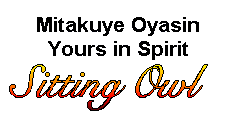|
Main
Menu
External
Pages
|
The
Light
of
Consciousness
(Excerpt
from
‘Memories,
Dreams,
Reflections')
By:
C.
G.
Jung
(From:
‘Earth
People’
Volume
1
Number
6)
About
this
time
[Student
years]
I
had
a
dream
which
both
frightened
and
encouraged
me.
It
was
night
in
some
unknown
place,
and
I
was
making
slow
and
painful
headway
against
a
mighty
wind.
Dense
fog
was
flying
along
everywhere.
I
had
my
hands
cupped
around
a
tiny
light
which
threatened
to
go
out
at
any
moment.
Everything
depended
on
my
keeping
this
light
alive.
Suddenly
I
had
the
feeling
that
something
was
coming
up
behind
me.
I
looked
back,
and
saw
a
gigantic
black
figure
following
me.
But
at
the
same
moment
I
was
conscious,
in
spite
of
my
terror,
that
I
must
keep
my
little
light
going
through
night
and
wind,
regardless
of
all
dangers.
When
I
awoke
I
realised
at
once
that
the
figure
was
a
“spectre
of
the
brocken”,
my
own
shadow
on
the
swirling
mists,
brought
into
being
by
the
little
light
I
was
carrying.
I
knew
too,
that
this
little
light
was
my
consciousness,
the
only
light
I
have.
My
own
understanding
is
the
light
sole
treasure
I
possess,
and
the
greatest.
Though
infinitly
small
and
fragile
in
comparison
with
the
powers
of
darkness,
it
is
still
a
light,
my
only
light.
The
Tower
and
Our
Roots
(Excerpt
from:
’Memories,
Dreams,
Reflections’
P.263-265)
By:
C.G.
Jung
(The
Tower
being
the
retirement
home
he
built
for
himself.)
Edited
and
Compiled
  
(From:
‘Earth
People’
Volume
2
Number
6
)
Our
souls
as
well
as
our
bodies
are
composed
of
individual
elements
which
were
all
already
present
in
the
ranks
of
our
ancestors.
The
“newness”
in
the
individual
psyche
is
an
endlessly
varied
recombination
of
age-old
components.
Body
and
soul
therefore
have
an
intensely
historical
character
and
find
no
proper
place
in
what
is
new,
in
things
that
have
just
come
into
being.
That
is
to
say,
our
ancestral
components
are
only
partly
at
home
in
such
things.
We
are
very
far
from
having
finished
completely
with
the
Middle
Ages,
classical
antiquity,
and
primitivity,
as
our
modern
psyches
pretend.
Nevertheless,
we
have
plunged
down
a
cataract
of
progress,
which
sweeps
us
on
into
the
future
with
ever
wilder
violence
the
farther
it
takes
us
from
our
roots.
Once
the
past
has
been
breeched,
it
is
usually
annihilated,
and
there
is
no
stopping
the
forward
motion.
But
it
is
precisely
the
loss
of
connection
with
the
past,
our
uprootedness,
which
has
given
rise
to
the
“discontents”
of
civilisation
and
to
such
a
flurry
and
haste
that
we
live
more
in
the
future
and
its
chimerical
promises
of
a
golden
age
than
in
the
present,
with
which
our
whole
evolutionary
background
has
not
yet
caught
up.
We
rush
impetuously
into
novelty,
driven
by
a
mounting
sense
of
insufficiency,
dissatisfaction,
and
restlessness.
We
no
longer
live
on
what
we
have,
but
on
promises,
no
longer
in
the
light
of
the
present
day,
but
in
the
darkness
of
the
future,
which,
we
expect,
will
at
last
bring
the
proper
sunrise.
We
refuse
to
recognise
that
everything
better
is
purchased
at
a
price
of
something
worse;
that,
for
example,
the
hope
of
greater
freedom
is
cancelled
out
by
increased
enslavement
to
the
state,
not
to
speak
of
the
terrible
perils
to
which
the
most
brilliant
discoveries
of
science
expose
us.
The
less
we
understand
of
what
our
fathers
and
forefathers
sought,
the
less
we
understand
ourselves,
and
thus
we
help
with
all
our
might
to
rob
the
individual
of
his
roots
and
his
guiding
instincts,
so
that
he
becomes
a
particle
in
the
mass,
ruled
only
by
what
Nietzsche
called
the
spirit
of
gravity.
Reforms
by
advances,
that
is,
by
new
methods
or
gadgets,
are
of
course
impressive
at
first,
but
in
the
long
run
they
are
dubious
and
in
any
case
dearly
paid
for.
They
by
no
means
increase
the
contentment
or
happiness
of
people
on
the
whole.
Mostly,
they
are
deceptive
sweetenings
of
existence,
like
speedier
communications,
which
unpleasantly
accelerate
the
tempo
of
life
and
leave
us
with
less
time
than
ever
before.
Omnis
festinatio
ex
parte
diaboli
est-all
haste
is
of
the
devil,
as
the
old
masters
used
to
say.
Reforms
by
retrogressions,
on
the
other
hand,
are
as
a
rule
less
expensive
and
in
addition
more
lasting,
for
they
return
to
the
simpler,
tried
and
tested
ways
of
the
past
and
make
the
sparsest
use
of
newspapers,
radio,
television,
and
all
supposedly
timesaving
innovations.
In
this
book
I
have
devoted
considerable
space
to
my
subjective
view
of
the
world,
which,
however,
is
not
a
product
of
rational
thinking.
It
is
rather
a
vision
such
as
will
come
to
one
who
undertakes,
deliberately,
with
half-closed
eyes
and
somewhat
closed
ears,
to
see
and
hear
the
form
and
voice
of
being.
If
our
impressions
are
too
distinct,
we
are
held
to
the
hour
and
minute
of
the
present
and
have
no
way
of
knowing
how
our
ancestral
psyches
listen
to
and
understand
the
present
-
in
other
words,
how
our
unconscious
is
responding
to
it.
Thus
we
remain
ignorant
of
whether
our
ancestral
components
find
elementary
gratification
in
our
lives,
or
whether
they
are
repelled.
Inner
peace
and
contentment
depend
in
large
measure
upon
whether
or
not
the
historical
family,
which
is
inherent
in
the
individual,
can
be
harmonised
with
the
ephemeral
conditions
of
the
present.
In
the
Tower
at
Bollingen
it
is
as
if
one
lived
in
many
centuries
simultaneously.
The
place
will
outlive
me,
and
in
its
location
and
style
it
points
backwards
to
things
of
long
ago.
There
is
very
little
about
it
to
suggest
the
present.
If
a
man
of
the
sixteenth
century
were
to
move
into
the
house,
only
the
kerosene
lamp
and
the
matches
would
be
new
to
him;
otherwise,
he
would
know
his
way
about
without
difficulty.
There
is
nothing
to
disturb
the
dead,
neither
electric
light
nor
telephone.
Moreover,
my
ancestors’
souls
are
sustained
by
the
atmosphere
of
the
house,
since
I
answer
for
them
the
questions
that
their
lives
once
left
behind.
I
carve
out
rough
answers
as
best
I
can.
I
have
even
drawn
them
on
the
walls.
It
is
as
if
a
silent,
greater
family,
stretching
down
the
centuries,
were
peopling
the
house.
There
I
live
in
my
second
personality
and
see
life
in
the
round,
as
something
forever
coming
into
being
and
passing
on.
Editors
notes:
I
can’t
help
but
wonder
why
the
work
of
this
exceptional
man
and
pioneer
of
psychological
understanding
is
not
used
and
understood
by
the
majority
of
the
Western
world,
as
this
book,
which
is
his
last,
has
been
around
since
1963.
And
his
experiences
that
he
talks
about
in
this
work
are
very
easily
understood
explanations
of
the
same
experiences
of
all
the
masters
of
wisdom.
In
my
opinion
this
is
the
wisdom
that
can
really
help
heal
humanity
of
its
illusions,
and
“To
Know
Thyself”,
wholly.


|